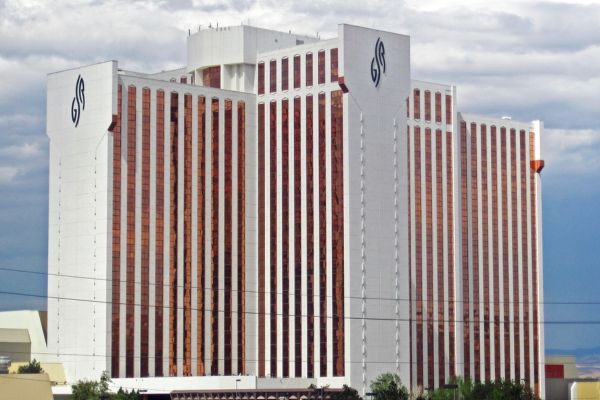
- Details
- By Darren Thompson
Jimmy-John Thompson, who lives in Sacramento, Calif., filed a lawsuit in Nevada state court last month against the Grand Sierra Resort and Casino in Reno, Nev., alleging that the popular Reno attraction discriminated against him because he was Native American.
According to the lawsuit, on Oct. 15, 2022, Thompson was a guest at the Grand Sierra Resort and Casino when he noticed the smell of smoke coming from the air vent in his hotel room and called the front desk to report a potential fire. The front desk dispatched hotel staff to check Thompson’s room and reported they could not find a source of smoke. The hotel then changed Thompson’s room.
Because Thompson was concerned about the smoke, he then called the Reno Fire Department to report a potential fire on the property. The fire department investigated and eventually cleared the property of any potential fire, saying to Thompson that the source of the fire had been extinguished.
The lawsuit asserts the hotel dispatched two security guards to Thompson’s new hotel room and demanded he leave the property. They allegedly also accused him of committing arson in his former hotel room, claiming they had evidence against him according to court documents.
“Jimmy-John Thompson was treated so poorly at the Grand Sierra Resort and Casino with no rational basis for the treatment he received,” Norberto J. Cisneros, legal representation for plaintiff Jimmy-John Thompson, told Native News Online. “Reporting a potential fire, resorted to him being accused of arson, and then being evicted from the hotel at 4 a.m., having to sleep in his car, with no opportunity to explain or refute himself for trying to save lives.”
If he was not a Native American, if this was a person not of color, he would have never experienced this kind of treatment. It’s embarrassing and can harm a person’s reputation.”
Because Thompson was denied the ability to enjoy the services of a public accommodation while others were able to do so, the suit alleges the Grand Sierra Resort and Casino violated his civil rights by discriminating against him. His attorney is asking for $15,000 for damages.
Since the incident, Cisneros says he has sent two separate demand letters to the Grand Sierra Resort and Casino asking for the organization to acknowledge the treatment of Thompson. “We have heard nothing from them,” he said. “I’ve never seen anything like this in my career.”
Thompson also has deep vein thrombosis (“DVT”) and takes medication to treat his condition. A side effect of his medication can cause a person to have involuntary convulsions if exposed to colder temperatures. As a result of being evicted from his hotel room at 4 a.m., he was forced to sleep in his vehicle, which caused him several convulsions, the suit says.
Thompson was attending the Western Mining Action Network’s conference when he was escorted out by security guards. His purpose in attending the conference was to make a field visit near the Thacker Pass Lithium mine, a project highly contested by tribes in the region. Because he was unable to rest, he missed the field visit to Thacker Pass.
“I was guilty out of the gate,” Thompson told Native News Online. “They didn’t want to hear anything from me.”
More Stories Like This
Native News Weekly (August 25, 2024): D.C. BriefsUS Presidents in Their Own Words Concerning American Indians
Indigenous Actor Elaine Miles Reports Detention by Alleged ICE Agents
Happy Thanksgiving from Native News Online
Coming Up on Native Bidaské: Behind the Animation: Joey Clift Talks “Pow” and Native Storytelling
Help us tell the stories that could save Native languages and food traditions
At a critical moment for Indian Country, Native News Online is embarking on our most ambitious reporting project yet: "Cultivating Culture," a three-year investigation into two forces shaping Native community survival—food sovereignty and language revitalization.
The devastating impact of COVID-19 accelerated the loss of Native elders and with them, irreplaceable cultural knowledge. Yet across tribal communities, innovative leaders are fighting back, reclaiming traditional food systems and breathing new life into Native languages. These aren't just cultural preservation efforts—they're powerful pathways to community health, healing, and resilience.
Our dedicated reporting team will spend three years documenting these stories through on-the-ground reporting in 18 tribal communities, producing over 200 in-depth stories, 18 podcast episodes, and multimedia content that amplifies Indigenous voices. We'll show policymakers, funders, and allies how cultural restoration directly impacts physical and mental wellness while celebrating successful models of sovereignty and self-determination.
This isn't corporate media parachuting into Indian Country for a quick story. This is sustained, relationship-based journalism by Native reporters who understand these communities. It's "Warrior Journalism"—fearless reporting that serves the 5.5 million readers who depend on us for news that mainstream media often ignores.
We need your help right now. While we've secured partial funding, we're still $450,000 short of our three-year budget. Our immediate goal is $25,000 this month to keep this critical work moving forward—funding reporter salaries, travel to remote communities, photography, and the deep reporting these stories deserve.
Every dollar directly supports Indigenous journalists telling Indigenous stories. Whether it's $5 or $50, your contribution ensures these vital narratives of resilience, innovation, and hope don't disappear into silence.
 The stakes couldn't be higher. Native languages are being lost at an alarming rate. Food insecurity plagues many tribal communities. But solutions are emerging, and these stories need to be told.
The stakes couldn't be higher. Native languages are being lost at an alarming rate. Food insecurity plagues many tribal communities. But solutions are emerging, and these stories need to be told.
Support independent Native journalism. Fund the stories that matter.
Levi Rickert (Potawatomi), Editor & Publisher
